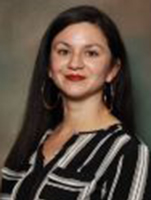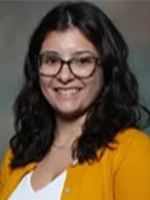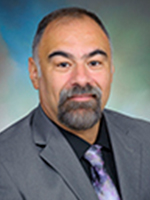As a member of the University of Texas System – one of the U.S.’s largest public university systems – and part of the Texas Medical Center – the world’s largest medical complex – the UTMB Graduate School of Biomedical Sciences (GSBS) equips our graduates with the training and skills to become leaders in academia, industry, and government in the U.S. and around the world. Established in 1969, our mission is to advance human understanding and knowledge in health-related disciplines through scholarly teaching and research in the biomedical sciences.
We offer a range of PhD programs, master’s programs, an MD-PhD Combined Degree Program, multiple postdoctoral certificates, and an NIH-funded Post-Baccalaureate Research Education Program (PREP).
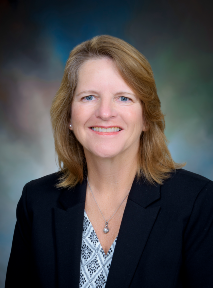
Message from Our Dean
Meet Our Team
-
Leadership
 Melinda Sheffield-Moore, PhDSenior Vice President and DeanGraduate School of Biomedical Sciences, Lawrence E. Ethridge, Jr. Distinguished ProfessorDepartment of Internal Medicine
Melinda Sheffield-Moore, PhDSenior Vice President and DeanGraduate School of Biomedical Sciences, Lawrence E. Ethridge, Jr. Distinguished ProfessorDepartment of Internal Medicine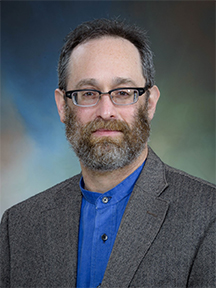 Daniel C. Jupiter, PhDAssociate Dean for Academic AffairsGraduate School of Biomedical Sciences, Associate ProfessorDepartment of Biostatistics and Data ScienceDepartment of Orthopaedic Surgery and RehabilitationInterim Director, Clinical Science Graduate ProgramFellow of the John Sealy Distinguished Chair for MD/PhD Combined Degree Studies
Daniel C. Jupiter, PhDAssociate Dean for Academic AffairsGraduate School of Biomedical Sciences, Associate ProfessorDepartment of Biostatistics and Data ScienceDepartment of Orthopaedic Surgery and RehabilitationInterim Director, Clinical Science Graduate ProgramFellow of the John Sealy Distinguished Chair for MD/PhD Combined Degree Studies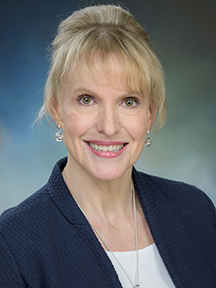 Tracy Toliver-Kinsky, PhDAssociate Dean for RecruitmentAssociate Dean for Student Affairs, ad interimDirector, Basic Biomedical Science CurriculumGraduate School of Biomedical Sciences, ProfessorSchool of Medicine, Leon Bromberg Professor for Excellence in TeachingDepartment of Anesthesiology
Tracy Toliver-Kinsky, PhDAssociate Dean for RecruitmentAssociate Dean for Student Affairs, ad interimDirector, Basic Biomedical Science CurriculumGraduate School of Biomedical Sciences, ProfessorSchool of Medicine, Leon Bromberg Professor for Excellence in TeachingDepartment of Anesthesiology -
Administration
 Trea SmithProgram Manager, Student Recruitment and AdmissionsPost-Baccalaureate Research Education Program
Trea SmithProgram Manager, Student Recruitment and AdmissionsPost-Baccalaureate Research Education Program -
Program Directors
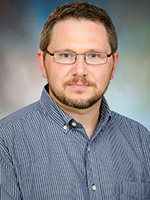 Dr. Petr LeimanBiochemistry and Molecular Biology TrackCell Biology TrackBiochemistry, Cellular, and Molecular Biology Graduate Program
Dr. Petr LeimanBiochemistry and Molecular Biology TrackCell Biology TrackBiochemistry, Cellular, and Molecular Biology Graduate Program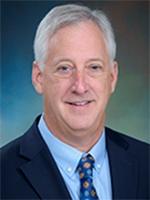 Dr. Jere McBrideExperimental Pathology Graduate Program
Dr. Jere McBrideExperimental Pathology Graduate Program Daniel C. Jupiter, PhDAssociate Dean for Academic AffairsGraduate School of Biomedical Sciences, Associate ProfessorDepartment of Biostatistics and Data ScienceDepartment of Orthopaedic Surgery and RehabilitationInterim Director, Clinical Science Graduate ProgramFellow of the John Sealy Distinguished Chair for MD/PhD Combined Degree Studies
Daniel C. Jupiter, PhDAssociate Dean for Academic AffairsGraduate School of Biomedical Sciences, Associate ProfessorDepartment of Biostatistics and Data ScienceDepartment of Orthopaedic Surgery and RehabilitationInterim Director, Clinical Science Graduate ProgramFellow of the John Sealy Distinguished Chair for MD/PhD Combined Degree Studies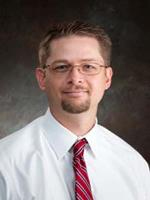 Dr. Jonathan HommelHuman Pathophysiology and Translational Medicine Graduate Program
Dr. Jonathan HommelHuman Pathophysiology and Translational Medicine Graduate Program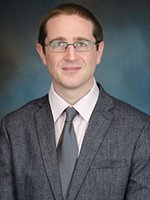 Dr. Andrew MurtonMaster of Medical Science Graduate Program
Dr. Andrew MurtonMaster of Medical Science Graduate Program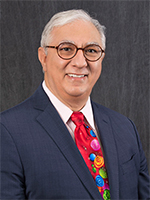 Dr. Michael LaposataMD-PhD Combined Degree Program
Dr. Michael LaposataMD-PhD Combined Degree Program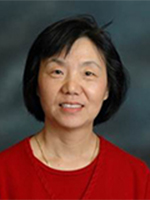 Dr. Lynn SoongMicrobiology and Immunology Graduate Program
Dr. Lynn SoongMicrobiology and Immunology Graduate Program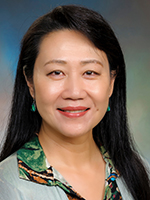 Dr. Ping WuNeuroscience Graduate Program
Dr. Ping WuNeuroscience Graduate Program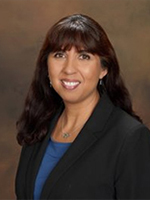 Dr. Gracie VargasPost-Baccalaureate Research Education Program
Dr. Gracie VargasPost-Baccalaureate Research Education Program Dr. Sara DannOffice of Postdoctoral Affairs
Dr. Sara DannOffice of Postdoctoral Affairs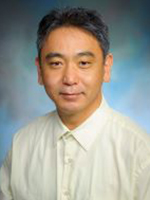 Dr. Junji IwaharaStructural Biology and Biophysics TrackBiochemistry, Cellular, and Molecular Biology Graduate Program
Dr. Junji IwaharaStructural Biology and Biophysics TrackBiochemistry, Cellular, and Molecular Biology Graduate Program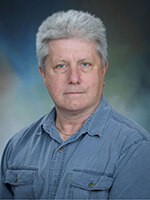 Dr. Nigel BourneVaccinology TrackHuman Pathophysiology and Translational Medicine Graduate Program
Dr. Nigel BourneVaccinology TrackHuman Pathophysiology and Translational Medicine Graduate Program Dr. Noelle AnastasioPharmacology and Toxicology Graduate Program
Dr. Noelle AnastasioPharmacology and Toxicology Graduate Program -
Program Coordinators
 Jennifer Ruiz-BetancourtClinical Science Graduate ProgramMaster of Medical Science Graduate Program
Jennifer Ruiz-BetancourtClinical Science Graduate ProgramMaster of Medical Science Graduate Program Trea SmithProgram Manager, Student Recruitment and AdmissionsPost-Baccalaureate Research Education Program
Trea SmithProgram Manager, Student Recruitment and AdmissionsPost-Baccalaureate Research Education Program








